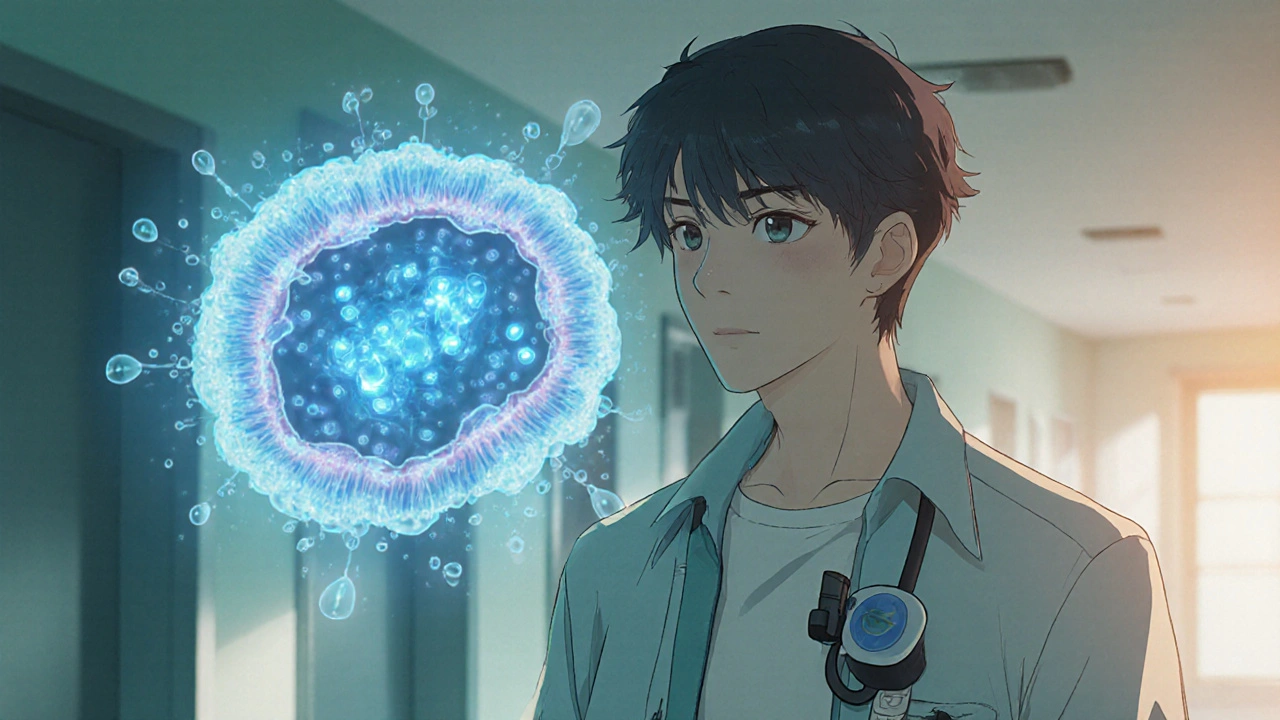Cystic Fibrosis Infertility: Causes, Connections, and What You Need to Know
When you have cystic fibrosis, a genetic disorder that thickens mucus in the lungs and digestive system. Also known as CF, it doesn’t just affect breathing—it can change your chances of having biological children. About 97% of men with cystic fibrosis are infertile, not because they don’t produce sperm, but because the tubes that carry sperm are missing or blocked from birth. This isn’t a later-life issue—it’s built into the condition. For women with CF, fertility isn’t gone, but thicker cervical mucus, nutritional challenges, and lung health can make getting pregnant harder than average.
CF-related infertility, a direct result of abnormal development in the reproductive system due to the CFTR gene mutation is often misunderstood. Many assume infertility means no sperm at all, but in men with CF, sperm is usually made normally—it just can’t leave the body. That’s where medical help like sperm retrieval and IVF comes in. For women, it’s less about blocked tubes and more about the body’s overall ability to support pregnancy. Poor lung function, low body weight, or frequent infections can delay or prevent conception. It’s not that you can’t have kids—it’s that your body needs extra support to make it happen.
Male infertility, a common outcome of cystic fibrosis due to congenital absence of the vas deferens is one of the most consistent medical facts tied to CF. Doctors call it CBAVD—congenital bilateral absence of the vas deferens. It’s not a mistake or a complication you develop over time. It’s something you’re born with. The same gene that causes thick mucus in the lungs also messes up the development of the tubes that connect the testes to the urethra. That’s why even men with perfect lung health and great nutrition still face infertility. The good news? Modern reproductive tech can often get around it. Sperm can be pulled directly from the testicles, then used in IVF. Many CF patients have become fathers this way.
What’s missing from most conversations is that infertility isn’t just a physical hurdle—it’s emotional. People with CF are already managing daily treatments, hospital visits, and uncertainty about the future. Adding infertility to the list can feel overwhelming. But you’re not alone. Thousands have walked this path. Support groups, fertility specialists who know CF, and genetic counselors can help you decide if biological children are right for you—or if adoption, surrogacy, or other paths might fit better.
There’s no one-size-fits-all answer. Some people with CF choose to pursue fertility treatments. Others focus on managing their health first. Some decide not to have biological children at all—and that’s valid too. What matters is having clear, honest information so you can make the choice that fits your life. Below, you’ll find real, practical guides from people who’ve been there: how to talk to your doctor, what tests to ask for, how to find a CF-friendly fertility clinic, and what the costs and success rates really look like. No fluff. Just what you need to move forward.

Cystic Fibrosis & Infertility: Essential Facts & Tips
Discover how cystic fibrosis impacts male and female fertility, learn diagnostic steps, treatment options, and practical tips for family planning with CF.
More Detail